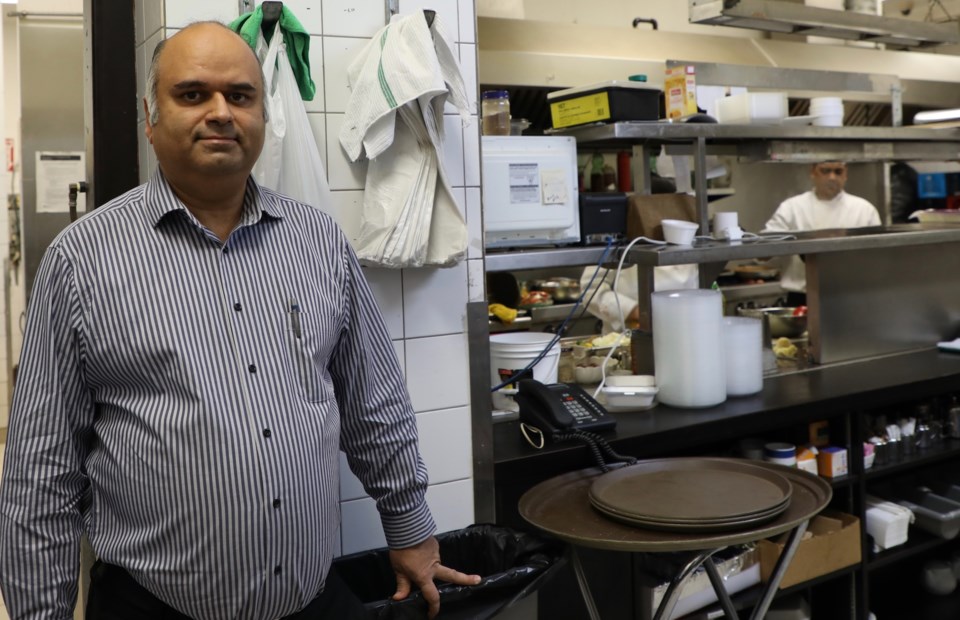Restaurants have been open for in-person dining for over a week now, but there is no guarantee they will stay open with the majority of business still coming from takeout orders.
“The dining is open ... but we are not getting many customers since people have a habit of doing takeout, delivery or ordering through apps because it's convenient,” said Naveen Saggi, owner of Tandoori Fuzion.
“I have been running this big place for the last seven years, and I pay $16,000 every month just for the takeout."
The NDP and the Alberta Business Improvement Area Alliance are calling on the Alberta government to put a 15 per cent cap on delivery fees from apps like SkipTheDishes, Uber Eats and DoorDash. They say an additional five per cent cap on processing fees would help local businesses cut down expenses through the pandemic.
“Restaurants have been hit very hard because of these commissions … there has to be a cap on it so you cannot charge more than that,” said Saggi.
Tandoori Fuzion uses three delivery apps to service customers, with the majority coming from SkipTheDishes, he said. The company charges him a 25 per cent commission rate plus additional fees if the courier has to wait for the food.
Uber Eats, which he said is also very popular, charges him a 30 per cent commission. DoorDash gives Saggi a slight discount, so he isn’t charged the full 25 per cent.
If a customer orders $100 worth of food, the restaurant is only getting $75 of that. The customer is also being charged a delivery fee and a tip, explained Saggi, which then goes to the courier.
“So, where is the rest of the money is going? It’s going to their pocket," he said.
Deron Bilous, NDP critic for economic development and innovation, said he heard restaurant owners were being charged as much as 35 per cent of the value of the food order.
“If we want to give small businesses a chance of surviving the pandemic and protect jobs, we need to do everything we can to support them now,” said Bilous in a press release. “Capping food delivery app fees is an easy and effective step the UCP can take to support these businesses.”
In December, Calgary city council wrote to Premier Jason Kenney advocating for legislation to impose restrictions on fees from food delivery apps, and unanimously supported a 15 per cent cap on fees.
Other provinces have taken steps to address concerns. British Columbia introduced a 15 per cent cap on fees at the end of December with an additional cap of five per cent on related fees, such as online ordering and processing fees. The cap will remain for three months after the province lifts its pandemic state of emergency.
Ontario also limited the rates food delivery services can charge to 20 per cent for each transaction, with no more than 15 per cent for commission, where indoor dining is prohibited.
“It’s a simple thing we can do to keep money in our local economies,” said Bilous. “Albertans want to support small, local businesses and we want to protect those businesses from being taken advantage of.”
Doug Schweitzer, minister of jobs, economy and innovation said restaurants have demonstrated tremendous determination and food delivery apps have allowed Albertans to support local restaurants while they were closed to in-person dining.
“In Alberta, government has worked with SkipTheDishes, among others, who have taken steps to waive and lower fees for many of their restaurant partners,” Schweitzer wrote in a written response.
Schweitzer said he is encouraging Albertans to support local businesses and is critical of caps put in place in other jurisdictions.
“In British Columbia when delivery caps were introduced, these services were forced to enact minimum order policies and reduce services,” he said.
Read more from StAlbertToday.ca



